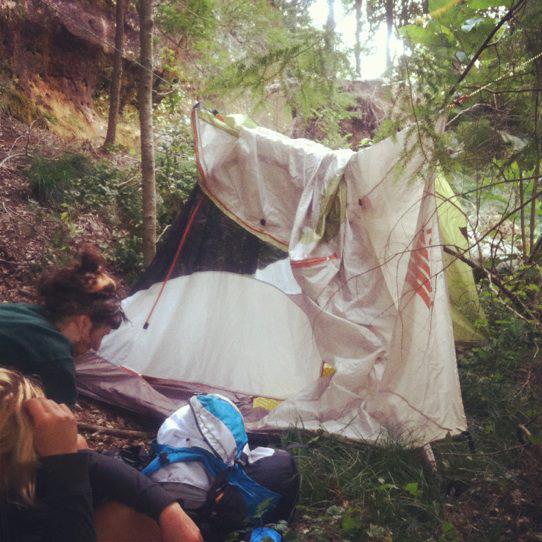 Sitting in a library which is becoming both worryingly and quite pleasantly more and more like a home to me than anywhere else, I am alerted to the terrible irony of what I’m doing. Here I am, all the way across the pond, in a place that only ever brings to mind the words “Republican” and “fried” – both of which I never cease to be brought to both unashamed laughter and tears by – reading Kingsly Amis’ 1954 novel “Lucky Jim”. I have come all this way to take a class in modern English literature. Not just modern English literature, but to read a novel that directly critiques the British academic and intellectual structuring of UK universities. A structure that I have just left in search of bigger fish to fry –no pun intended. Of course, I’m exercising a little sarcasm here. Finding an outlet for it here has proved rather difficult. It usually lands on some pale faced sorority girl with perfectly pruned blonde locks in symmetrical layers, who turns away from me looking unamused and usually slightly offended by the comments I have just made.
Sitting in a library which is becoming both worryingly and quite pleasantly more and more like a home to me than anywhere else, I am alerted to the terrible irony of what I’m doing. Here I am, all the way across the pond, in a place that only ever brings to mind the words “Republican” and “fried” – both of which I never cease to be brought to both unashamed laughter and tears by – reading Kingsly Amis’ 1954 novel “Lucky Jim”. I have come all this way to take a class in modern English literature. Not just modern English literature, but to read a novel that directly critiques the British academic and intellectual structuring of UK universities. A structure that I have just left in search of bigger fish to fry –no pun intended. Of course, I’m exercising a little sarcasm here. Finding an outlet for it here has proved rather difficult. It usually lands on some pale faced sorority girl with perfectly pruned blonde locks in symmetrical layers, who turns away from me looking unamused and usually slightly offended by the comments I have just made.
It’s not all that bad, that I actually have to read books written by English authors, authors who make up the canon of some of our more praise-worthy exports to the rest of the world. And it’s not all that bad, because alongside my disgruntlement of no longer being enclosed by my own case study of Amis’ novel, I have been taking a class entitled simply “Into the Wild”.
And here I can shed my cynical, tea-addict self, and fall into the first hand experience of what American’s have long referred to as “wilderness”. This is a much more complex term than it first appears. America is – relatively speaking – a young country, clinging onto a history it is still fairly wrapped up in, unable to quite have the clarity of retrospective we have been allowed in Europe. And, unlike Europe, the US isn’t famous for it’s chapel ceilings or Gothic castles, the cathedrals in America lie in the vision of Mark Twain’s snow-capped mountains and crystal clear lakes. The landscape, nature itself, is America’s most appealing and magnificent architecture. America as a nation, is defined by it’s natural environment. In fact, both of these words – nature and nation – stem from the same Latin root, meaning to be born or to have a re-birth. This United states was born into it’s social, political and spiritual identity through the defining of its landscape. That’s where we can draw that famous image of the rugged individual, the “self-made man” who comes home to his wooden cabin from a hard days work in ripped jeans, having chopped down several large trees and slamming a deer – which he shot all by himself – onto the kitchen table to feed his wife and several small children. The mythology of the American man is tied to nature because it has everything he needs. It has everything distinctly American.
But it not only allows the individual to provide for themselves, it gives something back. It is a place where torn and broken individuals turn to for escaping Chris McCandless’ “sick society” or to heal deep wounds caused by relationships or self-infliction. It’s a rehab of sorts, it connects the physical world to the emotional and the spiritual. If that’s the case, then surely all of America should be a sanctuary. But we know – looking at the bright yet emotionally dark neon lights of Las Vegas or New Orleans – that that isn’t actually the case. This “wilderness” upon which America was built has become separate from man. It is a place that Americans “go into”, they literally enter nature, heading to Alaska or the walking the Pacific Coast Trail. It is an entirely different nation from the one that American inhabit in civilised society. This becomes a slight problem. If we see nature as disconnected from man, how are supposed to conserve it live alongside it in the most harmonious way? This nature that we always talk about is more of an idea than an actual place, it is an idealised version of what American’s want to be. It’ a conceit, most of the national parks here were carefully planned and constructed by humans for the entrance of visitors so that when Americans look out onto the dense forest, they think it is entirely natural. Well that’s not true.
If we could unravel this disconnection, then nature and nation would once again become one. A united front to the United States. Instead, at present, to use the words of Cronon, American’s are “getting back to the wrong nature”.
Words: Lucy Cheseldine

